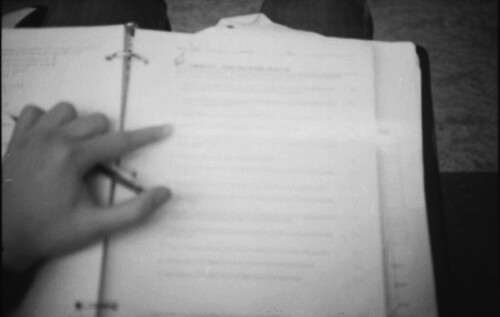My students don't study!
By Mary Bigelow
Posted on 2016-01-17
 I struggle with getting my biology students to prepare for assessments. What are your thoughts? — J., Arizona
I struggle with getting my biology students to prepare for assessments. What are your thoughts? — J., Arizona
This is not an uncommon problem and J. was able to provide some additional details:
“I give them study ‘helps’ that outline the concepts to be tested and extra points if they complete them. I do flashcards each day with the vocabulary. I give them a daily study tidbit—it might be rereading a section or highlighting and annotating their notes. I also use games such as Jeopardy and online tools such as Quizlet and Kahoot. I have even developed an online site where I can electronically host study sessions with students prior to a test. But they still seem unprepared.”
It sounds like you do a lot of work for the students: creating study guides, hosting review sessions, and designing vocabulary games. Perhaps students become dependent on teachers for these materials and don’t realize what they could or should do on their own. (I even had students who were absent on the day we reviewed ask whether they had to take the test!) I suspect many students, even in high school, are not sure how to study or review. So you make a key point when you asked about ways for students to help themselves prepare for assessments.
Review games can be helpful, assuming students understand their purpose and relate their performance in the game to their learning. These games may be fine for vocabulary and factual knowledge, but I wonder about their value in preparing for higher-order assessments.
Rather than, or in addition to, a review at the end of the unit, try spacing formative assessments throughout so that students can monitor what they are learning. Several teachers on the NSTA e-mail lists and forums have described their use of practice quizzes as a preview of the types of tasks on an assessment:
- —I give students a single page review sheet. Students answer what they can and then collaborate on responses to the remaining questions, while I circulate around the room to observe the students at work. We then regroup and review. Students who volunteer the correct response get extra credit for that question. Students have a record of the questions they struggled with and can review again before the test. The extra credit has a motivational impact on student effort.
- —I use Quia to create practice quizzes. After every test I share the average scores for students who did and did not complete the practice quizzes. There is usually a 10% difference (not surprisingly). It shows students something concrete they can do to improve. To them studying is sitting down and reading the notes; practice quizzes force them into a more focused review.
- —I recently [began] giving five extra points on their test only if they had done a quiz that I put online three separate times. I wanted them to study at least three days on their own. They had to complete the quiz each time and could not have done all three in one day. My objective was to get them to not study just the one night before and to get them to develop a more patterned form of studying.
What worked for my high school and middle school students was having them create an index card study guide. Students wrote whatever they thought was important on a 4×6 card. The students soon realized that they had to actually review their notes to create the card. Very few of my test items required students to recall information, and by having some information available to them during the test, the students’ responses to open-ended questions were much improved. They were not allowed to share their cards during the assessment, and I collected the cards with the test papers so that students could not give them to others.
I discovered that looking at the cards gave me some feedback on what the students considered important. The students attached the cards to their notebooks for future reference and review.
When creating these cards, students actually engaged in some higher-level thinking—determining what they knew, what they don’t know, and what they thought was important, as well as prioritizing information to fit on the card. Yes, there were students who did not take advantage of the opportunity. But I had a student who said, “You sly dog! I spent more time creating the card than I would just studying by paging through my notes—and I did well on the test!”
Disclaimer: The views expressed in this blog post are those of the author(s) and do not necessarily reflect the official position of the National Science Teaching Association (NSTA).


